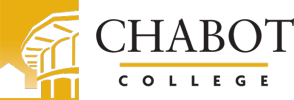
Dental Hygiene
This program map from the 2024-2025 catalog year represents one possible pathway to complete this program. Your pathway may vary depending on your transfer plans and also previous college credit, including AP Test scores, concurrent enrollment courses and high school articulated courses.
I'm ready to get started. What do I do next?
- Review this program map to get an overview of the required courses
- Meet with a counselor to develop your customized student education plan www.chabotcollege.edu/counseling
- Use DegreeWorks, an online student education planning tool, to track your progress toward graduation www.chabotcollege.edu / admissions / degreeworks
What can I do with this major?
Dental hygienists are preventive oral health professionals who have graduated from an accredited dental hygiene program in an institution of higher education, licensed in dental hygiene to provide educational, clinical, research, administrative and therapeutic services supporting total health through the promotion of optimum oral health." (ADEA, 2012).
Successful completion of the two-year program qualifies the student to take the National Board Dental Hygiene Exam and the regional board exam for licensure as a Registered Dental Hygienist.
Students in this program may choose to use their AS degree in Dental Hygiene to continue their education by earning a bachelor's degree. Career paths include but are not limited to:
- Clinical Practice
- Public Health
- Education
- Research
- Sales
- Entrepreneur
Learning and Career Pathway
- Health and Wellness
Icon Key
All students must be certified in BLS for the Health Care Provider through the American Heart Association. The Dental Hygiene Program units combined with the Associate in Science Degree (G.E.) requirements will be in excess of the minimum 60 units.
Prerequisites
Prerequisite courses are required before applying for the Dental Hygiene program and must be completed by the Fall prior to the year of application.
In-progress grades are not accepted.
BIOS
43
Human Physiology
BIOS
44
Microbiology
CHEM
30A
Introductory and Applied Chemistry I
CHEM
30B
Introductory and Applied Chemistry II
PSYC
C1000
Introduction to Psychology
SOCI
1
Principles of Sociology
ENGL
C1000
Academic Reading and Writing
NUTR
1
Introduction to Nutrition Science
COMM 1 or COMM 10 (choose one)
Semester 1
Once admitted into the Dental Hygiene program, all of the required courses below must be completed.
DHYG
50A
Dental Hygiene Orientation I
DHYG
60
Dental Anatomy and Morphology
DHYG
60S
Dental Anatomy and Morphology Independent Study
DHYG
61
Head and Neck Anatomy
DHYG
61S
Head and Neck Anatomy Independent Study
DHYG
69A
Oral Health Care Education
DHYG
71A
Pre-Clinical Dental Hygiene
DHYG
71S
Pre-clinical Dental Hygiene Independent Study
DHYG
74A
Dental Radiography I
Semester 2
DHYG
51
General and Oral Pathology
DHYG
55A
Dental Materials
DHYG
69B
Treatment and Evaluation in Dental Hygiene
DHYG
71B
Clinical Dental Hygiene
DHYG
73
Educational Theories in Dental Hygiene Care
DHYG
74B
Dental Radiography II
DHYG
75
Medical Emergencies
Semester 3
DHYG
50B
Dental Hygiene Orientation II
DHYG
52A
Periodontics
DHYG
54
Pharmacology
DHYG
56A
Community Dental Health I
DHYG
57
Expanded Functions for the Dental Hygienist
DHYG
72S
Advanced Periodontal Procedure
DHYG
80A
Patient Management
DHYG
81A
Clinical Practice I
DHYG
82A
Clinical Experience Seminar I
Semester 4
DHYG
56B
Community Dental Health II
DHYG
50C
Dental Hygiene Orientation III
DHYG
52B
Advanced Periodontics
DHYG
58
Dental Office Practice
DHYG
80B
Advanced Clinical Topics
DHYG
81B
Clinical Practice II
DHYG
82B
Clinical Experience Seminar II
DHYG
83
Patients with Special Needs
General Education Requirements
Students may earn an AS degree at Chabot with completion of any one of the following general education patterns:
-
Local AS pattern
-
CSU General Education Breadth pattern
-
IGETC General Education pattern
See the general education course lists: https://www.chabotcollege.edu/counseling/transfer/ge-requirement-transfer-archive.php.
It is recommended that all students meet with a Chabot College counselor to review and create an individualized student education plan. See the Counseling Department webpage for information on how to speak with a counselor: www.chabotcollege.edu/counseling.
.